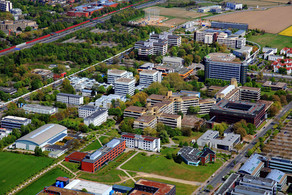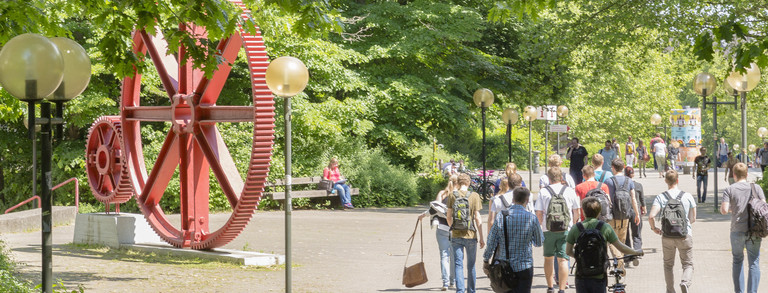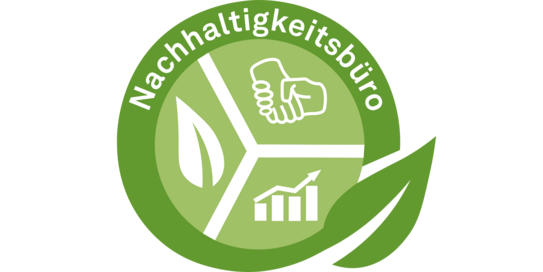Reporting Architecture
TU Dortmund University presents its first sustainability report in September 2024. On behalf of the Rectorate, the Sustainability Office has worked closely with various members of TU Dortmund University to centrally record and prepare the university's sustainability indicators from its fields of activity. The report, which is continuously updated and published exclusively online, presents the sustainability efforts of TU Dortmund University in a transparent manner and, for the first time, offers a procedure for documenting the current status and progress in the area of sustainability.
DG HochN
Methodologically, the report is based, among others, on the recommendations of the DG HochN research project. The BMBF-funded project "Sustainability at Higher Education Institutions: develop – network – report (HOCH-N)" examined how universities can implement sustainability in their fields of action and drafted a university-specific German Sustainability Code (hDNK) (in German) between 2016 and 2021. Practical guidelines were developed to support universities in defining, conceptualizing and reviewing their sustainability goals. This report takes into account all DG HochN criteria and fields of action. Nevertheless, it deviates in parts from the DG HochN structure and uses different terminology in places. This is primarily due to the fact that the report is intended to be intuitively understandable, comprehensible and interesting, especially for readers who have not yet dealt with sustainability issues in a university context.
GreenMetric
The 39 indicators defined by the"UI GreenMetric World University Ranking" in 6 criteria ("Setting and Infrastructure", "Energy and Climate", "Waste", "Water", "Transportation" and "Education and Research" (Green Metric, 2023)) were also taken into account in the design of this sustainability report. Initiated in 2010 by "Universitas Indonesia", the ranking records the commitment and initiatives of universities worldwide for a green campus and ecological sustainability. As TU Dortmund University's understanding of sustainability encompasses social and economic aspects as well as ecological ones, the criteria defined by GreenMetric cannot stand alone and form a supplement.
Open source
Open source icons from Font Awesome were used for the report illustrations. Interactive graphics were created using python and inkscape .
Emission factors
| Emitter | CO2-eq | unit | source |
|---|---|---|---|
| Car | 182 | g CO2-eq/km | [1] |
| Domestic flight | 255 | g CO2-eq/km | [1] |
| Long-haul flight | 150 | g CO2-eq/km | [1] |
| Train | 41 | g CO2-eq/km | [1] |
| Overnight stay in 3-star hotel | 16900 | g CO2-eq/night | [2] |
| Sources | |||
| [1] | Our World in Data | ||
| [2] | DEHOGA Federal Association (DEHOGA Bundesverband), Nachhaltiges Wirtschaften in Hotellerie und Gastronomie, 2016, p. 7 (in German). | ||
Keyword search in the chapter "Implementation of ESD"
The total number of courses was determined in the university portal LSF in the "Students" role according to course type and semester. Certain event types such as "exams" or "school internship" were not counted. The following were counted as sustainable courses:
1. All courses from the studium oecologicum in Winter semester 21/22 (31) and Summer semester 22 (35)
2. Courses in the university portal LSF were searched for keywords: WiSe 21/22 (95) and SoSe 22 (81) (Courses from the studium oecologicum modules have already been deducted): "Armut, Barrierefreiheit, Behinderung, Bildung für nachhaltige Entwicklung, BNE, climate, Energie, environment, erneuerbare, gerecht, Gerechtigkeit, Gesundheit, Infrastruktur, justice, Klima, Klimaschutz, Mobilität, nachhaltig, Nachhaltigkeit, sustain, Umwelt, renewable, Geschlecht, Gesundheit, Hunger, hochwertige Bildung, Wasser, Konsum, Frieden, öko, ökologisch, Natur, Transform, Wende"
Disclaimer
This sustainability report does not claim to be exhaustive and will be updated regularly. Following this initial assessment of the status quo, it is also planned to focus on various key topics in the future and address them in more detail. We welcome suggestions and additions to the report at nachhaltigkeit@tu-dortmund.de. The selected projects are intended to show examples of how sustainability at TU Dortmund University is embedded and considered in research, teaching and transfer, in government, management and operations. Quantitative data was obtained from different time periods, depending on the criterion dealt with, which are marked in each case. Qualitative data was generally recorded for the year 2022. The Sustainability Office is continuously working on making the Sustainability Report barrier-free.





